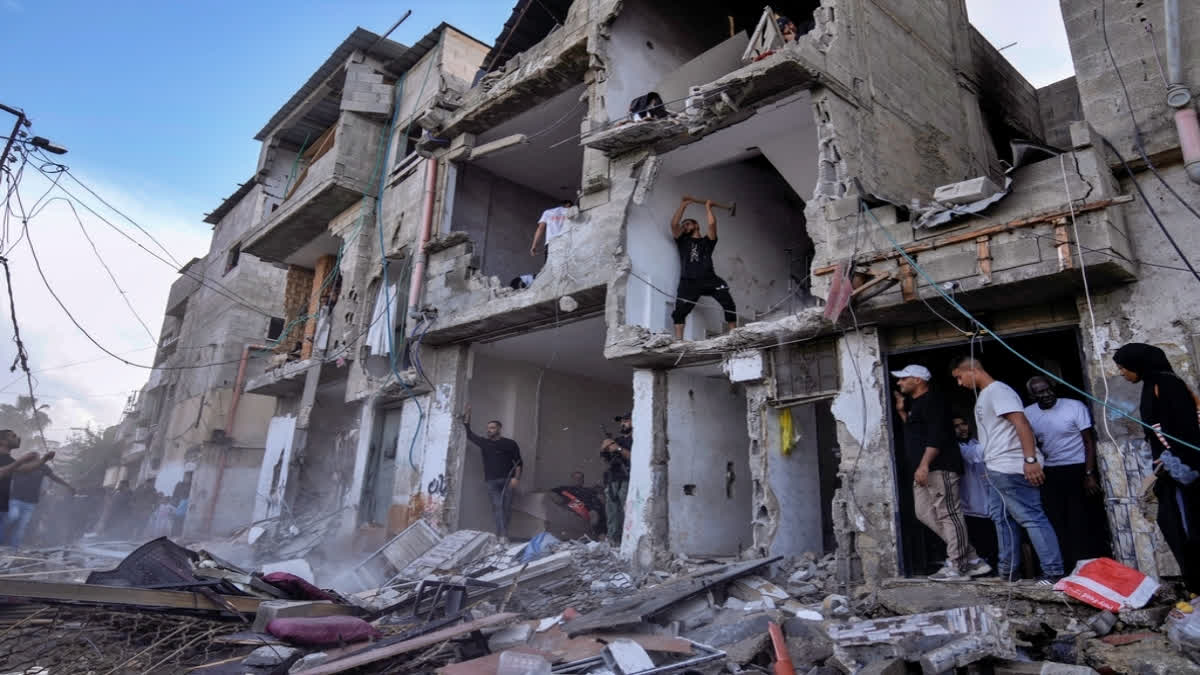New Delhi: Though negotiations are on for the release of hostages by Hamas in exchange for Palestinian prisoners in Israel, experts believe that the whole process will be complex because of the deep distrust between the two sides.
According to reports, Hamas has agreed to release 70 hostages in response to Israel’s demand for freeing of 100 hostages. On the other hand, Israel has reportedly agreed to free 120 Palestinian women and children from its prisons. Israel is also likely to agree to a five-day truce for the exchange process to take place.
Hamas had taken nearly 250 people hostage after its October 7 attack on Israel. Later, four of the hostages, including two American citizens, were released while one hostage was rescued by Israeli Defence Forces (IDF). According to IDF spokesperson Lt. Col. Jonathan Cornicus, Hamas is currently holding at least 240 people hostage.
Prior to October 7 when the Israel-Hamas war erupted, there were nearly 5,200 Palestinians, including 33 women and 170 minors, lodged in Israeli jails. However, after October 7, this number has increased to around 7,000, according to information available on the website of Addameer, a prisoners’ rights NGO. These include 62 women and 200 children. “Hamas will partially achieve its objective of getting the release of some of the Palestinian prisoners from Israeli jails in exchange for the Israeli hostages it kidnapped on October 7,” R Dayakar, former Indian Ambassador to Iraq and Jordan who also served in the West Asia desk of the Ministry of External Affairs, told ETV Bharat.
“This despite Israel’s five-week battle of attrition with Hamas,” Dayakar said. “Given the deep distrust ingrained in Hamas-Israel relations, the exchange process linked to brief spells of ceasefire over five days will be a complex exercise.” According to S Samuel C Rajiv, Associate Fellow in the Manohar Parrikar Institute of Defence Studies and Analyses, US interest has been a crucial factor in starting the negotiations between the two sides for the release of hostages by Hamas in lieu of Palestinian prisoners in Israel.
“There are 10 Americans who are unaccounted for and are believed to be in Hamas custody,” Rajiv said. “There is also a three-year-old American child whose both parents were killed. The Americans want a solution. But Israel wants a concrete deal.”
Rajiv said that the IDF went to Al Rantisi Hospital in Gaza and came across proof of hostages being kept there. He said that the hostages that Hamas will release will depend upon their demographic profile – the elderly, women and children. However, what has complicated the negotiation process is that it is being held in an indirect manner.
“Qatar, Egypt, the CIA and Mossad are involved in the negotiations. Jake Sullivan, the US National Security Advisor, is also playing an active role. However, communication lines in Gaza have been cut off and that is making the process difficult,” Rajiv said.
This is why it is difficult to estimate a timeframe within which the exchange process will be completed. It may recalled that in 2006, Hamas-linked militants captured Israeli soldier Gilad Shalit during a cross-border raid. They held Shalit captive for five years till he was exchanged for 1,000 Palestinian prisoners held by Israel. Rajiv pointed out that the primary objective of Israel in the ongoing war is to eliminate Hamas. At the same time, Hamas too has been unrelenting.
“The very idea of exchange even after five weeks of fighting shows that Hamas is far from being vanquished and is still in a position to lay conditions for the release of hostages,” Dayakar said. “However, it is a good augury that bodes well for the release of the remaining hostages.”
Also read:



